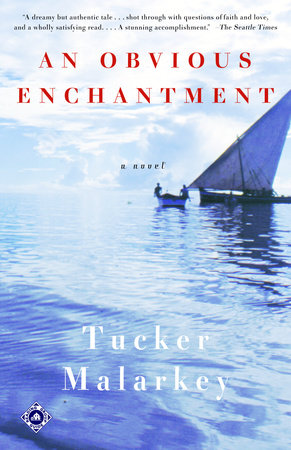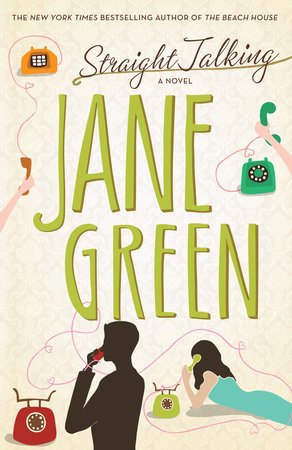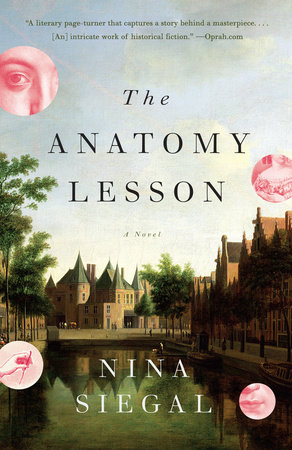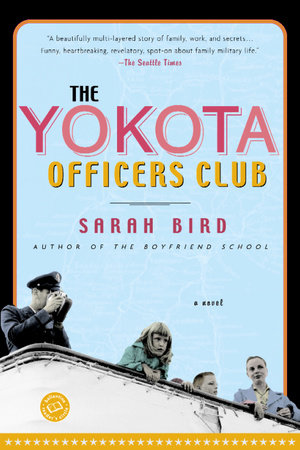Author Q&A
A Conversation with Sarah Bird
Sarah Bird, in Austin, has a long phone chat with her mother, Colista
Bird, and two sisters, Kay and Martha, who are all in Albuquerque
curled around a speaker phone.
Sarah: You guys just had brunch on the patio? WAAAHHH!! I wish I
could have been there. What did you have?
Martha: Breakfast burritos–
Kay: –and mimosas–
Martha: –and strawberries–
Mom: –and mimosas!
Laughter.
Sarah: So, you’re telling me you’re all baked.
Kay: Lightly toasted.
Laughter.
Sarah: Okay, well get it together; we’re supposed to be talking about
this book inspired by our family.
Kay: Book? You wrote a book? You write? When did this start?
Mom: I thought you were demonstrating electric scissors at Sears. (A
job Sarah had during Christmas break her junior year.)
Kay: Yeah, you should be about ready to retire now.
Martha: Okay, we should talk about the book.
Kay: That’s Martha. She’s The Nice One.
Reek-reek, Reek-reek.
Sarah: What’s that sound?
Martha: That’s Kay. She’s making the brown-nose sign at me.
Sarah: All right, questions. Or, actually, I hope this can be more of a
conversation. Of course, we’ve talked a ton about the book. You all
were reading and approving rough drafts while I was writing it, but
I’d love to ask some questions and get "official" answers. So, first
question: Mom, how on earth could you have let me go off for two
weeks to Tokyo with a pinkie-ringed comedian?
Laughter.
Mom: That’s a good question. I musta been out of my mind.
Sarah: No, really.
Mom: Well, you remember, after you won this contest and
announced you were going, we all went over to his house. He
promised he was going to take his maid along as a chaperone.
Sarah: His "maid"? She was his girlfriend, concubine, something.
Mom: Well, he told us she was his maid, and he swore on his mother’s
grave that there wouldn’t be any funny business of any kind. Then
he said, "Why are you asking me all these questions? You’re acting
like I’m some kind of white slaver." And I said, "Well, I want to
make sure you aren’t a white slaver." (Laughs.) Sarah, it wasn’t a
matter of me "letting" you go. It was a question of you coming
home and telling us you were going.
Sarah: So much for the dictatorial military family.
Kay: Since I was seven at the time, I don’t remember much of this
very clearly. Did Mom take you to a sew girl to have a costume
made?
Mom: Oh no, the sew girls came to the house.
Sarah: That’s right. I had my characters go to her in the book so that
we could have a little tour through lovely downtown Koza.
Mom: Yes. We had these very short costumes made, and then you
proceeded to whack off about another foot.
Martha: So they went from very short to very, very short.
Silence.
Sarah: I’m not not saying anything; I’m writing furiously.
Kay: Every word’s a gem.
Reek-reek, Reek-reek.
Kay: Now Martha’s calling me a brown-nose.
Sarah: Everyone always asks if I really had a sister like Kit. Does anyone
ever assume that one of you was Kit? And, if so, I’m very sorry.
Martha: Well, I guess because chronologically it would have been
me, people sometimes act like they have the inside story on my
life. That I’m really Kit. Oh, what a joke that is!
Sarah: Yeah, we all know that Kay was really Kit. (Laughs.)
Kay: I was Kit? You were Kit!
Sarah: Right. Remember my program I instituted in high school? I
made myself speak to one person every day who was not a member
of my family? "May I borrow your pencil?" "Do you know what
time it is?"
Martha: More important, who was Bosco?
Kay: And the answer is . . .
Martha & Kay: . . . YOU were Bosco!
Sarah: Maybe the obsessive, anxiety-ridden, noodgy parts of Bosco
are me, but the sweetness–I really modeled that on my little sisters.
You guys were such sweet little girls.
Reek-reek. Reek-reek.
Sarah: Who did that?! Who gave me the brown-nose noise? Okay,
come on, questions.
Kay: Yeah, I have a question: Did the comedian guy really hit on you?
Sarah: Yes.
Martha, Kay, & Mom: Eeeee-YUGG!
Sarah: I know. And he really did tell me that he shot blanks.
Kay: And that’s what made the difference. Not just that he’s a big, fat,
greasy, fifth-rate comedian. But he’s a big, fat, greasy fifth-rate
comedian who–
Kay & Martha: –shoots blanks!!
Sarah: Yeah, how did I resist?
Kay: Hey, Sarah, guess who’s coming to Isleta Pueblo Casino?
Sarah: Uh . . . Captain and Tenille?
Kay: Close, Tom Jones!
Sarah: Tom Jones? Oh, now, that’s sad. Are you gonna go?
Kay: The only way I’d go is if you come with me.
Sarah: When’s he gonna be at the Pweb?
Kay: May.
Sarah: Gotta miss Tom. I’m not coming until June.
Martha: You know, Tom’s schedule seems pretty open these days.
We’ll get him to stay over for you.
Kay: Yeah, he can move in with Mom. Bring in her breakfast tray.
(Sings) What’s new, pussycat? Woo-oo-woo-oo-woo-woo.
Martha: Tom, please, close your robe.
Sarah: Yeah, Mom’ll be zinging her undies at him.
Kay: Right, suds these out, Tom.
Sarah: How many mimosas did you all have?
Mom: Counting the ones we’re drinking right now?
Laughter.
Sarah: The book, this book I wrote . . .
Kay: Mom, since I wasn’t even born when we were in Japan, it was
interesting for me to read that you had this whole life where Dad
would come home and you couldn’t say, "Hi, dear, how was your
day?" He couldn’t talk about his work and, I assume, you knew it
was dangerous. What was that like?
Mom: Kinda scary.
Kay: When he’d leave on a mission, would you even know when he
was coming back?
Mom: Newp.
Sarah: How much did you know?
Mom: I knew they’d turned in a couple of May Days. Been a few missions
when no one thought they were gonna make it home. That
other crews in the squadron hadn’t made it home.
Sarah: Did Dad talk about that?
Mom: No, not directly. He couldn’t. But he’d be shook up, drink a
little more than usual, and really get into the family thing in a big
way. But the scariest part of it was when there were casualties. I’m
telling you, the way they made those families disappear . . .
Sarah: The families of the men who–
Mom: –didn’t come home. Boy, they were gone overnight.
Sarah: I remember that. How the little girl who’d been sitting next to
you the day before, coloring in the route Vasco da Gama took
to the New World, was just gone with no explanation. One of the
hardest things to convey in the book was how it never occurred to
you to even ask what happened.
Kay: Back to the Go-Go Years, how did it feel going back after that
experience?
Sarah: You mean back to UNM?
Kay: Yes, were you missing the little people?
Sarah: (Laughs) Right. That whole experience was so removed from
my real life. The only way I could do it was knowing for absolute
certain that no one I knew would ever see me. I never mentioned
it much once it was over. Especially not after I became a fiction
writer. "I was a go-go dancer in Tokyo." Sounds so completely
made up. What about you guys? What was it like for you coming
back from Okinawa?
Mom: Like being let out of suspended animation after almost three
years.
Kay: All I wanted to do was eat American food: Sweet Tarts, Burger
Chef–
Martha: Remember that neighbor of ours who brought us back a loaf
of Wonder bread? It was supposed to be such a giant treat. Reeked
of jet fuel. And the chocolate? All the chocolate from "the World"
was all melted and looked like it had sat on a runway in Guam for a
few days, melting in the sun.
Kay: Didn’t stop us though, did it?
Sarah: What has been the reaction of your friends and people you
know to the book?
Kay: You’re forgetting, Sarah, we don’t know people. We’re still insulated,
living in our own little world. Seriously, it’s been favorable
but a little cautious. People aren’t sure what’s true.
Sarah: Okay, forget other people. What was it like for you to read the
book?
Kay: It was really moving. Much more so than I thought it would
be, especially the pieces of Mom that you captured and brought
back.
Martha: I liked how it re-created the feel of the family. I know it
wasn’t a history of our family, but it all seemed so familiar. I sure
knew where the original threads came from, and that made me
like it all the more.
Kay: It was also reassuring to me.
Sarah: How?
Kay: Just that my sense of not belonging had a reason, and that lots
and lots of other people felt the same way.
Mom: Of course, I always tried to figure out what was reality and
what was just a figment of your imagination. It brought back a lot
of memories. Like it was happening all over again.
Sarah: Anything in particular?
Mom: I tried to remember if I disliked the wives that much or if they
disliked me that much. I do remember feeling like I was sort of an
outcast.
Kay: So that part was true?
Mom: Well, I certainly was an outcast when I took that job as school
nurse at Kadena Elementary on Okinawa. I definitely was made to
feel that I’d deserted the ranks. The president of the Wives Club
would call and ask if I could "pour" between the hours of two and
four, when some general’s wife was going to be in town.
Kay: "Pour"?
Martha: At a tea.
Kay: Oh, so mostly you’d just try and remember which cup your shot
of bourbon was in.
Mom: You needed one at those affairs. I’d tell them I worked
between the hours of two and four, and there would be a very long
silence. Working? An officer’s wife? Horrors!
Kay: What did you think about Moe?
Mom: Well, she’s got to be one of the worst housekeepers in history.
Kay: Funny you should pick up on that. I don’t recall housekeeping
being a big thing for you. Did you like Moe?
Mom: Oh yeah.
Martha: Sarah, are you ever asked, given that so much of the book is
true, why you didn’t just write a memoir?
Sarah: Yeah, and I tell them to mind their own freaking business.
Actually, I never really wanted to write a memoir for a couple of
reasons. The first is that, as anyone who’s ever had a sister or
brother will tell you, at some point after you’re grown, you start
exchanging memories and you wonder, "Did we grow up in the
same family? Did we eat the same bowls of cereal and watch the
same cartoons?" So I didn’t want to write The Official History of
Our Family for that reason. But also I wanted to go beyond the
puny details of my own puny life and try to tell a bigger story.
Martha: Which you did with Fumiko. I know I’ve told you this before,
but that was my favorite part. I couldn’t put the book down.
Sarah: Any reason why?
Kay: Yeah, it was just good writing.
Martha: Sarah, I have a comment: I think you made it real clear in the
book that moving so much, always being uprooted, always being
the "new kid," made the family incredibly tight.
Mom: It was good that during all these troop movements, we took our
own troop with us!
Kay: Mom, you’ve always emphasized us sticking together, being
friends. Was that because of who you were or because we moved
so much.
Mom: Probably a bit of both. It’s always been important to me that
you guys were friends. A lot of times you had to be friends cuz
there wasn’t gonna be anybody else!
Martha: And also no one else outside our family "got" us. I clearly
remember learning that I couldn’t tell the same joke outside the
family that was funny inside the family. People would just think
you’re weird.
Kay: That hasn’t changed much.
Martha: Have you learned anything about our family from writing the
book?
Kay: Has your view of the family changed?
Sarah: Well put. Very good question.
Kay: I used to be a reporter.
Sarah: And it shows. For me the great gift of this book was learning
about Dad, about his reconnaissance work. So much of it I’d
always taken for granted. Like the Distinguished Flying Cross–I
remember when he got that. But since all those missions were
classified, it was never specified what he got it for, so I just
assumed it was something all the dads got. For perfect attendance
or something. It wasn’t until I did the research for this book that I
found out a DFC is just one step below a Medal of Honor, and that
it is incredibly rare to receive one in peacetime and even more
unusual for the flyer to be alive to receive it.
Mom: I hope you know how very proud he was of you.
Kay: Incredibly proud.
Sarah: One of the important moments of my life was that night after
I’d sent you all the manuscript and he got on the line. I was so nervous.
He said, "Well, I’ve read the book." Then there was this big
dramatic pause, and my heart stops. He goes on and says, "And I
think it’s a magnificent achievement. I’m very proud of you." That
still undoes me. It was like something out of a made for TV movie.
One of those utterly perfect moments that you don’t think happens
in real life. I’m so grateful it did. I loved what he appreciated
about the book. He kept asking how I’d come to understand so
well how political a military career is, and how I’d gotten the information
about the kind of reconnaissance work he did, since he
would never talk specifically about the missions he’d been on.
Much of that material had been declassified by the time I was
doing the research, and I was reading books, reading about missions
that I’m certain if he wasn’t actually on, he knew the men
who were. I’d tell him stories from the books and say, "Dad, look,
it’s declassified. You can talk about your missions. Tell me how you
got the DFC. These other guys are writing books." I’ll never forget
his answer: "That’s their choice. I took the oath." "I took the oath,"
that level of loyalty, that complete lack of cynicism–it awes me.
Mom: Well, when you were doing the research, he told you stories
that I’d never heard.
Sarah: That was wonderful, that we had something we could talk
about.
Mom: I think it brought you two a lot closer together, because I think
you both were looking for a way to be closer.
Martha: It got to the core of his career.
Kay: The core of his identity, his rules of honor and behavior were so
in step with the military. You’re loyal, you don’t ask questions.
Sarah: But I also think that his sense of humor, that subversive sense
of humor that he passed on to us, was how he was able to accept
that life.
Mom: I guess you need to write an epilogue.
Sarah: What would that be?
Mom: You could tell what happened to all the Roots: Bernie is teaching
English, Bob is a nuclear physicist, the twins are doing time.
Sarah: Great idea. I’ll write that up. Okay, anything anyone wants to
add? Subtract? I’m gonna write this up for posterity.
Kay: Oh, Sarah, didn’t I mention? This is all off the record.
Sarah: Talk to my lawyer.
Kay: Talk to my lawyer!
Sarah: Bye, babies, I love you. Thank you.
Reek-reek, Reek-reek.
Dedicated to Lt. Col. John Aaron Bird
June 12, 1920–October 1, 2001
The Yokota Officers Club



























